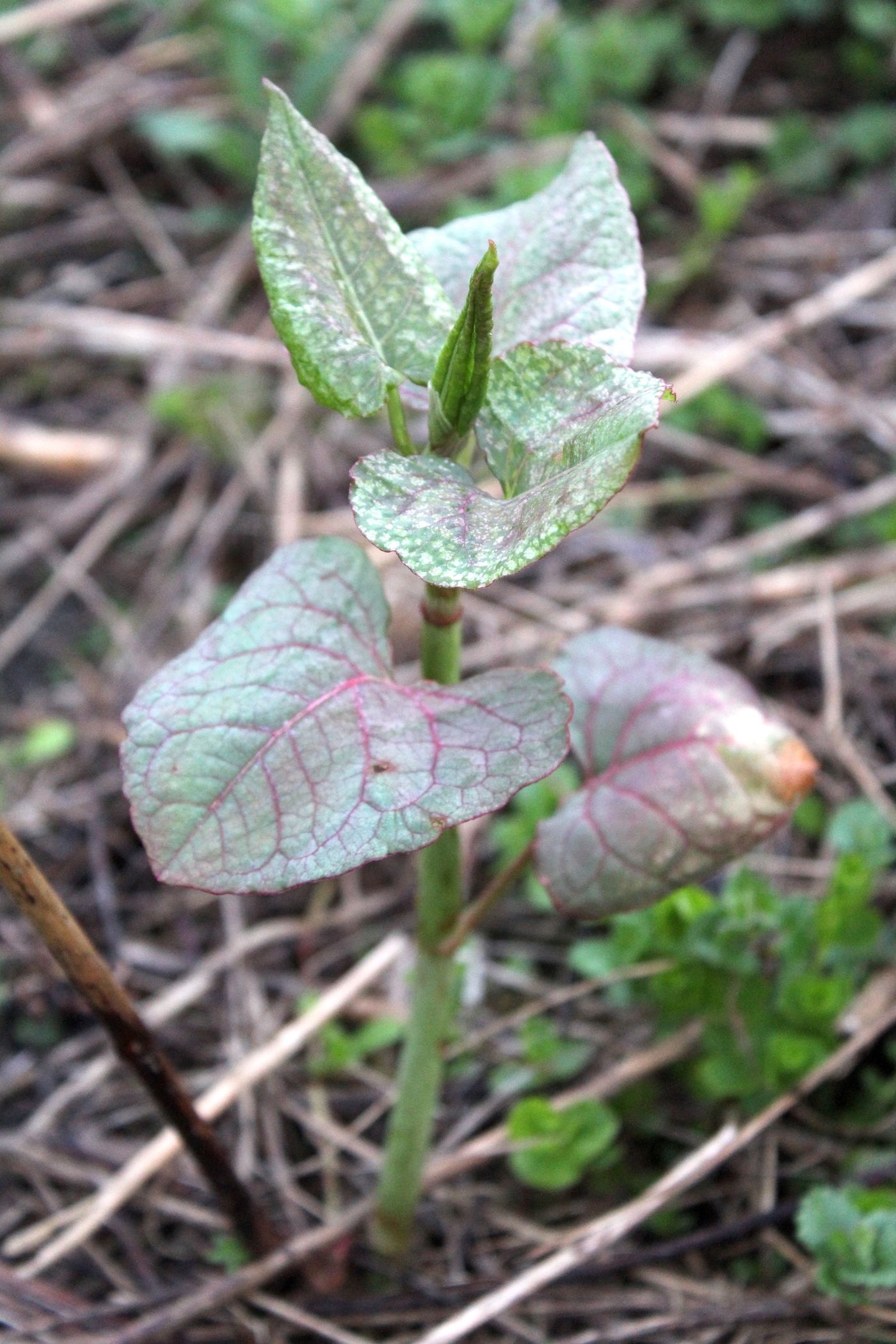With its heart-shaped leaves Bindweed may look similar to Japanese Knotweed. The leaves of Bindweed also alternate along the stem and much like knotweed when it appears in spring Bindweed can cover a large area very quickly.

The Dwarf Japanese Knotweed Will Have Clusters Of Pink Flowers In The Summer Plant Leaves Pink Flowers Plants Source: www.pinterest.com
Lesser Knotweed Persicaria campanulata.

Plants that look like japanese knotweed. Identifying the plant is not always simple and its easy to get confused. Russian vine close up. Japanese knotweed is native to eastern Asia and was introduced to North America as a horticultural plant in the late 19th century.
They are Bindweed Houttuynia Lilac Russian Vine Broadleafed Dock Honeysuckle Bamboo Himalayan Honeysuckle Horsetail Himalayan Balsam and Buckwheat. Bindweed a troublesome but relatively harmless perennial plant often found snaking its way over hedges and fences was most commonly mistaken for Japanese knotweed selected by 16 of respondents followed by Houttuynia 4 and cottage garden favourite peonies 4 which when emerging from the ground look similar to the red spear-like shoots of knotweed. In this video our co-founder.
A Japanese knotweed infestation on your property can be highly damaging. It also has a hollow stem. Ornamental bistorts are commonly planted decorative garden species.
You can easily spot Japanese knotweed in spring by its heart-shaped leaves. As previously mentioned Japanese knotweed will never exhibit this behaviour. Like knotweed it also has spade-shaped leaves and grows at an exponential rate.
Bindweed as pictured above. It forms dense thickets of bamboo-like vegetation that aggressively outcompetes native plants and negatively impacts wetland and riparian areas. Plants that look like Japanese knotweed.
Dogwood Cornus Sanguinea Like many woody shrubs and trees Dogwood and Lilac are plants that look like Japanese Knotweed as the leaves are very similar. Peonies can look similar to knotweed when they emerge in the spring as they also have red spear-like shoots. The Russian Vine is an ornamental plant thanks to its vines that are dotted with flowers.
It has a climbing nature and can grow up to 10 meters high. The leaves are borne on petioles and spread up to. They are closely related to Japanese knotweed and are in the same genus as Himalayan knotweed Persicaria wallichii.
Plants that people often mistake for Japanese knotweed include bindweed Himalayan balsam Russian vine broadleaf dock and some lilac and woody shrubs. Similar to Japanese Knotweed Himalayan Balsam is a rapidly growing plant. There are numerous plants that look like Japanese Knotweed meaning that these plants are often mistaken for Japanese Knotweed.
Japanese knotweed can cause a great deal of damage to properties. The plants we find that are most commonly mistaken for Japanese knotweed are. Like Bindweed Russian vine is another plant that needs to twist itself around something solid like another plant or a man-made structure like pipes.
There are 10 plants that look like Japanese Knotweed. There are many plants that look like Japanese knotweed and have similar characteristics. How you can tell the difference between Bindweed and Knotweed.
It is fairly easy to tell the difference by checking out the stems Knotweed is not woody. On the other hand it is also similar to Bindweed in that it relies on other plants to grow upward twisting and climbing around the stems of taller more solid vegetation. Its a fast-growing plant with leaves and flowers that appear like that of the Japanese Knotweed.
Begin by inspecting the stem you will see the leaves grow opposite each other rather than the alternating pattern of. Red bistort is probably the most common. It can be costly to remove too.
It can grow in a wide range of habitats including riparian areas wetlands roadsides ditches and fence lines. Much like Japanese knotweed Russian Vine has similar looking leaves and flowers while it is also fast-growing. It can quickly cover a large area and grow as tall as 25 Metres.

Using Japanese Knotweed For Food And Medicine Medicinal Weeds Wild Edibles Recipes Wild Food Source: www.pinterest.com

Pin On Plants Source: www.pinterest.com

Highly Invasive Japanese Knotweed Reynoutria Japonica Japonica Invasive Plants Plants Source: www.pinterest.com

Wild Edibles How To Eat Japanese Knotweed In 2020 Medicinal Plants Plants Wild Edibles Source: www.pinterest.com

Pin On Foraging Edible Wilds Source: www.pinterest.com

Pin By Japanese Knotweed Expert On What Does Japanese Knotweed Look Like Japanese Plants Gallery Source: br.pinterest.com